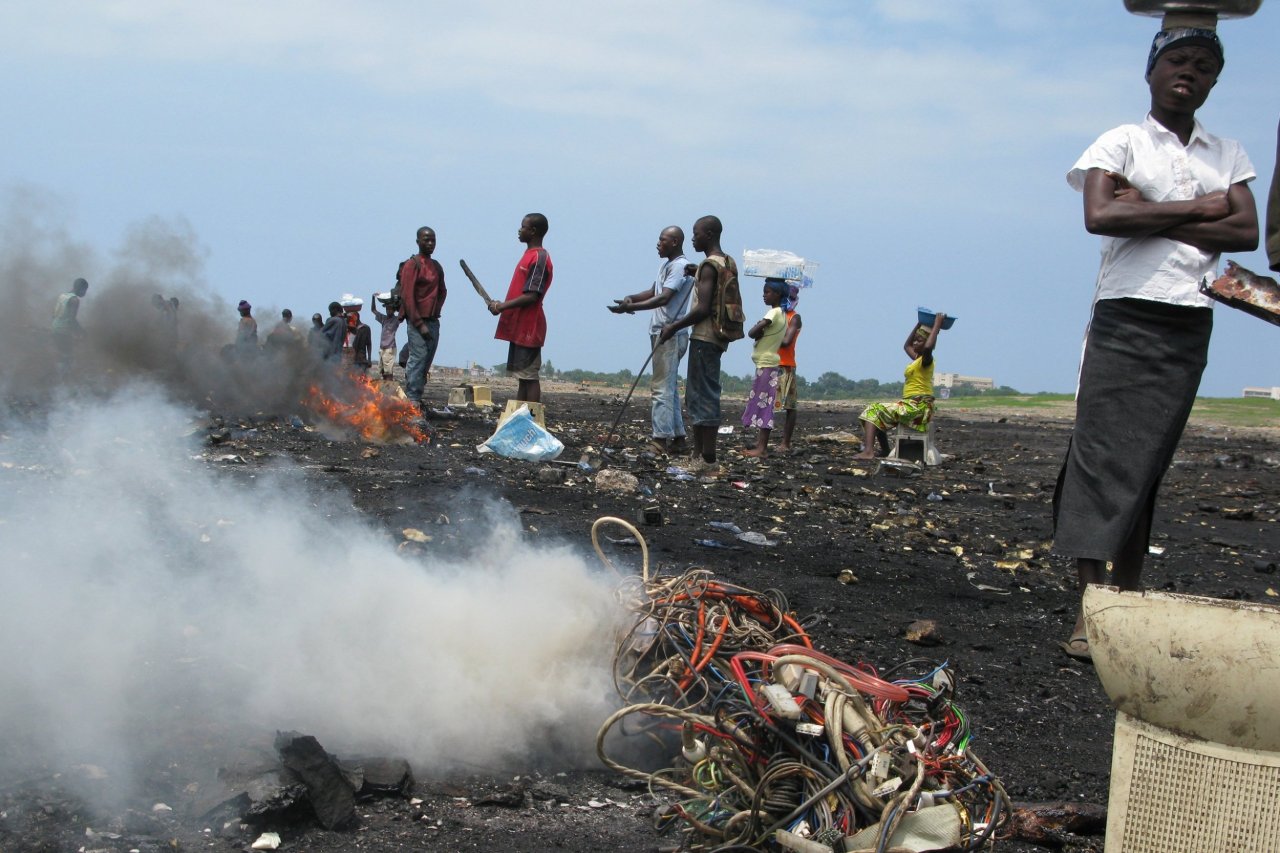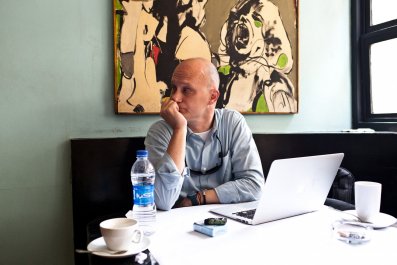RACHEL FIELD was still a college student when she saw reports in 2010 about a smoldering slum in Ghana so gruesome that locals called it Sodom and Gomorrah. It's one of the world's dumping grounds for defunct electronics, and residents make their living there—if it can be called a living—by melting computer circuit boards to try to extract the metals. They don't get much, perhaps a little copper. A lot of the rest is lost. Children ingest the e-waste miasma with every breath and every bite of food. Field was horrified and decided to make it her thesis project at Harvard, and her mission, to develop a safer way for the people in that slum to do the job they were trying to do. Her answer: a pedal-powered grinder that works on the same principle as big industrial recycling plants, pulverizing the plastic and extracting the metals with magnetic currents. "All of the supplies necessary can be harvested from supplies readily available at the electronic waste sites, such as magnets from speakers or drives," she says. She has already won a $35,000 prize to develop it further. She calls it "Bicyclean," and clearly the project is on a roll.
Rachel Field's Mission to Turn Trash into Treasure in Ghana

























